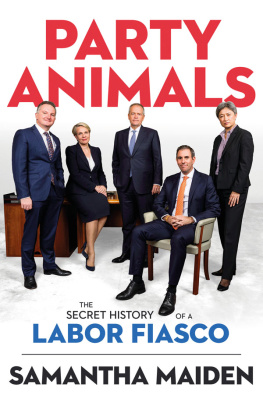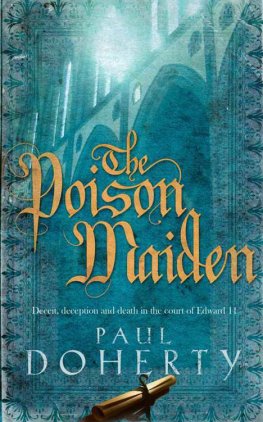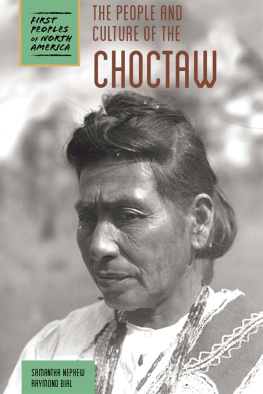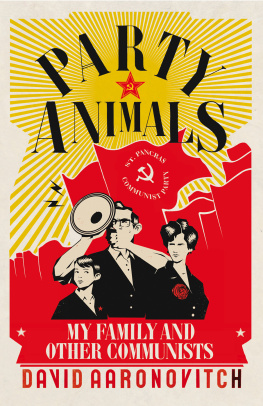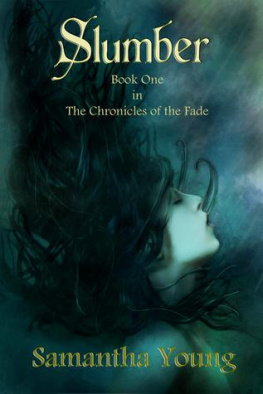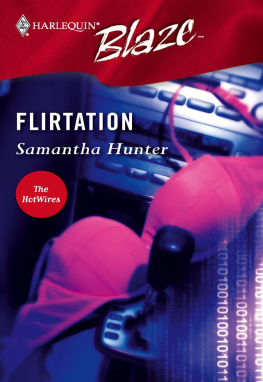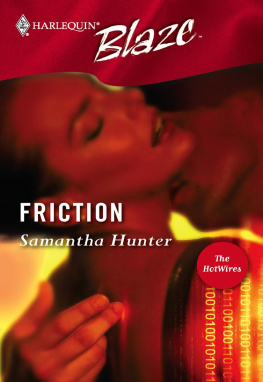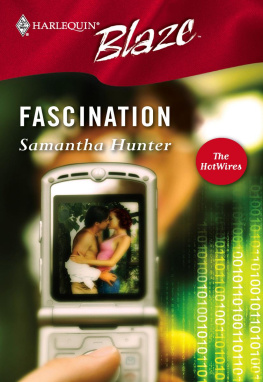Samantha Maiden - Party Animals
Here you can read online Samantha Maiden - Party Animals full text of the book (entire story) in english for free. Download pdf and epub, get meaning, cover and reviews about this ebook. publisher: Penguin Random House Australia, genre: Politics. Description of the work, (preface) as well as reviews are available. Best literature library LitArk.com created for fans of good reading and offers a wide selection of genres:
Romance novel
Science fiction
Adventure
Detective
Science
History
Home and family
Prose
Art
Politics
Computer
Non-fiction
Religion
Business
Children
Humor
Choose a favorite category and find really read worthwhile books. Enjoy immersion in the world of imagination, feel the emotions of the characters or learn something new for yourself, make an fascinating discovery.
- Book:Party Animals
- Author:
- Publisher:Penguin Random House Australia
- Genre:
- Rating:5 / 5
- Favourites:Add to favourites
- Your mark:
- 100
- 1
- 2
- 3
- 4
- 5
Party Animals: summary, description and annotation
We offer to read an annotation, description, summary or preface (depends on what the author of the book "Party Animals" wrote himself). If you haven't found the necessary information about the book — write in the comments, we will try to find it.
Party Animals — read online for free the complete book (whole text) full work
Below is the text of the book, divided by pages. System saving the place of the last page read, allows you to conveniently read the book "Party Animals" online for free, without having to search again every time where you left off. Put a bookmark, and you can go to the page where you finished reading at any time.
Font size:
Interval:
Bookmark:

How did Labor lose the unlosable election?
Secrets, lies, lawyers and covert recordings. If you thought the 2019 election was just about a death tax that didnt exist, youre in for a surprise.
From the dark arts of the dirt units to the role of billionaire Clive Palmer, this is the untold story of an election debacle. The Labor Party was the unbeatable favourite to win the 2019 election right up until the polls closed and voters delivered the surprise verdict.
If the results staggered pundits, they also shocked Bill Shorten and his frontbench, who had spent the final weeks of the campaign carefully planning for their first days in office.
Party Animals uncovers the secret history of a Labor fiasco, the untold story behind Scott Morrisons miracle.


For Matilda, Bill and Ned
RISKY BUSINESS
Bill Shorten had grand ambitions to become Australias next Bob Hawke. It must have come as a rude shock to discover that he was, instead, starring in the revival of the 1993 musical Fightback! , faithfully retracing the steps of John Hewson. A quarter of a century separates the defeats, but both men can claim the miserable honour of losing the unlosable election. Hewson campaigned for a GST from opposition but could not explain how the new tax would apply to a birthday cake. Shorten pledged action on climate change, but could not explain how much his policies would cost the economy. Too late, the Labor leader hit on a better answer: that doing nothing would cost Australians more.
Like Hewson before him, Shorten faced a prime minister known for his arrogance, who had served as treasurer before contesting a leadership ballot, who was damaged by internal leadership wars and was written off and underestimated in the looming contest. Paul Keating and Scott Morrison were fighting elections nobody expected them to win and campaigned without the weight of great expectations beyond an honourable defeat. Instead, they ended up winning. Can these victories be explained solely by their campaign brilliance? Of course not.
Both leaders wanted to tell voters the truth about their big policy agenda. They believed voters would reward their honesty. It didnt go exactly to plan. Labor was heavily influenced by the lessons of Julia Gillard and her carbon tax lie, and the fate of Tony Abbott, who won the next election with promises of no cuts to hospitals, no cuts to schools, before he did just that in his first budget. If trust was broken between voters and politicians, Labor hoped to heal that scar on democracy with transparency.
The Labor Partys own report into the 2019 election defeat, conducted by former SA Premier Jay Weatherill and Craig Emerson, nominates multiple reasons for the fiasco. First, Labor did not settle on a persuasive strategy for winning the election. Second, there was no formal campaign committee established, a claim rejected by those who point out there was a strategic review group that included Labors Campaign Director Noah Carroll and the leadership group. Its reasonable to suggest, however, that it was not terribly effective and did not meet after the election was called.
Also highlighted by the report was the fact that Labor didnt craft a simple narrative, and lacked a culture and structure that encouraged debate, which led to the dismissal of warnings from within the party about the campaigns direction. In addition, Labor targeted too many seats, ensuring resources were spread too thinly. Labors election campaign did not adapt to the new Liberal leader and his reframing of the election as a choice between himself and Shorten.
The change in Liberal leadership was a fundamental shift that the review notes required careful analysis and consideration but this did not occur. The report also claimed there was no documented strategy that had been discussed, contested and agreed across the campaign organisation, the leadership and the wider Labor Party. This is a finding disputed by Shortens office, who note that the ALP reviewers Weatherill and Emerson never asked them to provide any strategy documents. But whatever the truth, few seemed to know what the strategy was.
Labor was on high alert for an early election. But Labor did not expect danger to arrive in the form of the Liberal Party dumping a sitting prime minister. This was a rupture that most believed signalled the end of the government.
Much has been written about the genius of Scott Morrison turning up in Queensland wearing a baseball cap, but surely there is more to his victory than a dress-ups box. The prime minister was aided and abetted by an opposition that had dared to awaken the sleeping giant of Australias democracy: voters deep, primal fear of risk.
Veteran Labor campaign strategist Peter Barron, an adviser to Hawke and Keating who travelled with Shorten during the election, hates giving interviews. He prides himself on keeping the confidences of the political and business leaders he has worked with over decades, including the late Kerry Packer. But he would agree to say this: risk was central to Labors fate.
The search for a simple answer is a futile search, he said. But the electorate hates risk. There was an accumulation of risk factors. Policy, personality. If you had to choose one word, you would say risk. I dont think they liked Morrison any more at the end than they did at the start. But I think they thought he was less risky.
The report explicitly states that Bill Shortens unpopularity contributed to the election loss. The former Labor leader does not accept this characterisation. However, many of his colleagues do. The idea his popularity was a factor is supported by the Australian National Universitys trusted electoral study, which found Shorten was the most unpopular leader in 30 years.
The ALPs own post-mortem into the election also accepts this, but arguably overstates it as a contributor to the election loss. Shortens supporters view the report as a transparent attempt to blame him personally for the defeat. But the intense focus on the popularity of a leader holds future risks for Anthony Albanese too. If the polls suggest he also struggles to excite voters, will the Labor Party be prepared to dump him before the next election?
Consider the evidence of federal elections in Australias recent history the winner is frequently the party that can paint its opponent as more risky and radical. Australian voters are risk averse, a tendency pronounced when the economy is in trouble.
In 1993, Barrons brutal advice to Keating was to run on the GST alone not compassion, or the Asian century, or Aboriginal reconciliation. His anti-GST manual included in the tool kit this memorable line: If you dont understand it, dont vote for it, and if you do understand it, youd never vote for it. Does that sound familiar? It should, because Morrison stole it to fight Labors franking-credit reforms at the 2019 election. The Liberal prime minister campaigned parroting the actual words Keating had used to defeat Hewson.
The fate of the referendum on an Australian republic in 1999 is another example. Again, voters demonstrated an aversion to perceived risks, rejecting an Australian head of state. The biggest backlash was in Queensland, Western Australia and Tasmania, the same states that turned on Shorten. As with the 2019 federal election, Victoria and the ACT were the ALPs greenest pastures in the republic referendum.
Font size:
Interval:
Bookmark:
Similar books «Party Animals»
Look at similar books to Party Animals. We have selected literature similar in name and meaning in the hope of providing readers with more options to find new, interesting, not yet read works.
Discussion, reviews of the book Party Animals and just readers' own opinions. Leave your comments, write what you think about the work, its meaning or the main characters. Specify what exactly you liked and what you didn't like, and why you think so.

